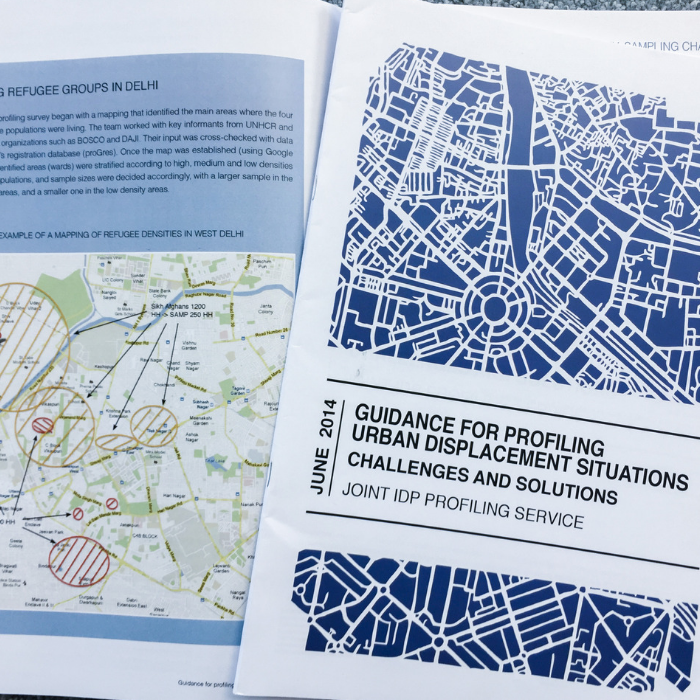JIPS’ Guidance for Profiling Urban Displacement Situations offers solutions to some of the challenges inherent in carrying out such exercises in towns and cities. Most of the world’s displaced people – both refugees and IDPs – live in urban areas, where they form part of an expanding global majority. For governments and agencies working to address forced displacement, building useful, context-specific data and analysis in urban settings is crucial.
The Guidance was developed in 2013-2014 through a collaboration between JIPS and the Feinstein International Center of Tufts University, build on areas of complementary expertise and several jointly conducted case studies.
As part of the Global Alliance for Urban Crises and the Urban Analysis Network, JIPS is also working with partners to update its approaches to profiling in urban areas. Recent outputs of these efforts include “Urban Profiling for Better Responses to Humanitarian Crises” as well as the related webinar.

The guidance draws on the experience of working with government, humanitarian and development partners to profile urban displacement situations. It is not intended as a comprehensive guidance but complements the step-by-step approach (presented in other tools such as the JET) by highlighting specific urban issues and techniques for mitigating these challenges on the ground.
Urban settings, where IDPs and refugees live dispersed among the local population in remarkably complex environments, present specific challenges for profiling practitioners.
Locating displaced persons, distinguishing them from other population groups, and identifying their specific needs and capacities are all particularly challenging and jeopardise our ability to understand urban displacement and make informed response decision.
This guidance offers best practices to overcome them, or at least minimise their effects.